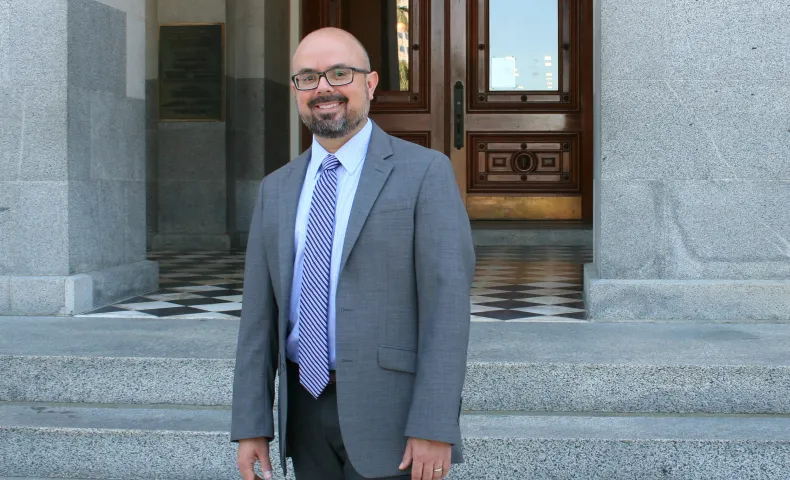 ©
©
Daniel Torres
How does your life experience shape the work you do? The experience of growing up in an immigrant family and community shaped how I see my work. The values that my parents held also informed my view of world. My parents worked very hard and in tough conditions. They and my older siblings worked as migrant farm workers for many years. My parents and siblings were able to find jobs that allowed them to settle in one community, save money and buy homes. Along the way, they taught me the importance of getting an education, helping others, and being part of the community. My professional experience also shaped my view of immigrant integration. I worked as an immigration lawyer for many years and saw the challenges immigrants face in our immigration system. I know about the deeply personal reasons why people come to California and the United States, whether they’re seeking protection from persecution or reuniting with family. Witnessing these diverse human experiences has helped me understand the importance of immigrant integration. Based on the different experiences of my family, community, and former clients, I think about the many conditions needed to help immigrants in their journey to become full participants in California’s civic life, our communities and our state’s economy.
What kind of work do you do on a daily basis? My role is to make sure that our state policies and programs are implemented and coordinated in such a way as to help immigrants succeed in our state. We help improve access to state programs and services that include, for example, driver’s licenses, college access, adult education, healthcare, workforce training and legal services. We’re also expanding support for naturalization to fully integrate immigrants.
Why is the work you do so important? Twenty-seven percent of the California population is foreign-born. More than one in four people. When we create opportunities for immigrants, we see more small businesses open up. We see people have greater success in schools. We see immigrants contributing more robustly in local communities. And that helps everyone in our state.
What are the risks facing immigrant communities right now? There is a lot of fear in immigrant communities about the possibility of deportation and family separation. People don’t feel safe. And the danger is that the fear will cause people to avoid important services such allowing their kids to go to school, or going to work or the doctor. We are doing more to provide legal resources, including deportation defense services, so that people can get help.
What is the most important thing California needs to do right now to be more welcoming for immigrants? California has stepped up in a big way to say we care and we welcome immigrants in our state. Right now, we need to reach out and engage immigrant communities directly and explain what programs are available to help them and their families. We also need to make sure our programs are inclusive and continue to make them more accessible for immigrants.
What’s the best role for philanthropy in this work? Foundations like the Haas, Jr. Fund can help make sure resources go to parts of the state where they are needed right now. A lot of this work is done by nonprofit community groups, and philanthropy has a key role to play in making sure those groups are healthy and strong. Foundations also can provide rapid-response resources to specific, underserved communities where new challenges or opportunities are happening all the time.
What about the average Californian, immigrant or non-immigrant? What can people do to make sure California is a welcome place for immigrants? The first step is to find those groups in your community that are doing good work. Find out what they need and volunteer. People also need to be part of the conversation on these issues at the city, county and state levels. It’s important to show support for inclusion and for California remaining a welcoming state.
What’s your hope for California’s future? Keeping our economy strong depends on the inclusion of many different types of immigrants who come here to work, create new businesses, and become leaders. I want to see California continue to be a model for our country, so we can showcase how to successfully integrate immigrants and thrive as a very diverse state.